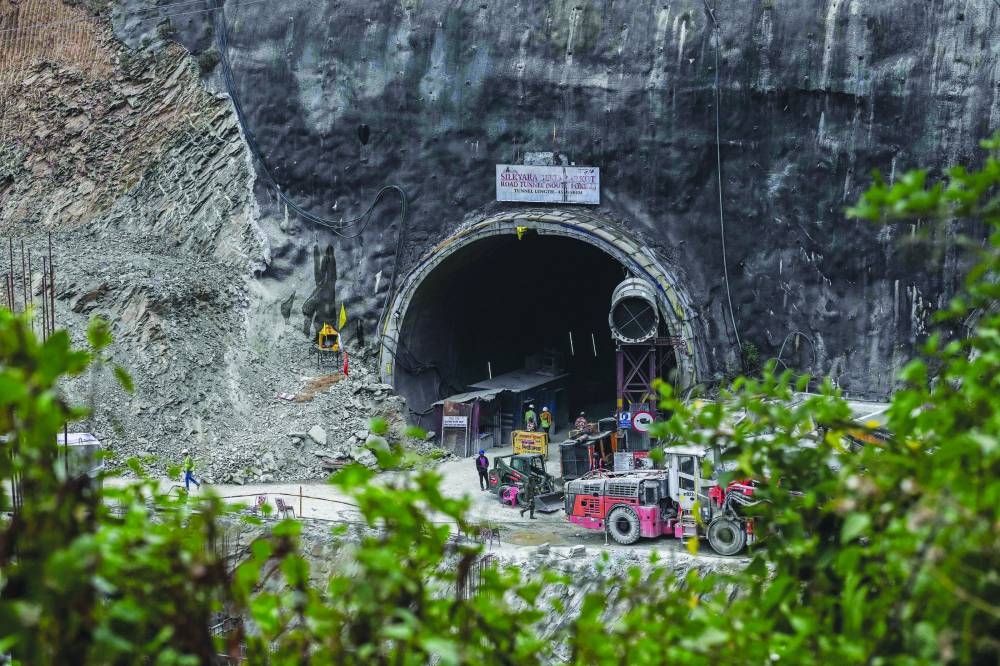Rescuers yesterday brought in “rat miners” to drill through a narrow pipe and help pull out 41 construction workers trapped in a tunnel in the Indian Himalayas for more than two weeks after high-powered machines failed, officials said.
The men, low-wage workers from India’s poorest states, have been stuck in the 4.5km tunnel in Uttarakhand state since it collapsed on November 12.
They have been getting food, water, light, oxygen and medicines through a pipe but efforts to dig a tunnel have run into a series of snags with machines.
Attempts to drill a tunnel horizontally through the debris trapping the men have been plagued by damage to machinery and rescuers began drilling by hand after clearing away the broken equipment inside the narrow evacuation pipe.
The drilling, removal of debris and pushing the 900mm wide evacuation pipe further is now being done from inside the pipe by a team of six “rat miners” from central India, who officials described as “skilled workers”.
“Let’s pray and let’s hope that this can be done as fast as possible with as little difficulty as possible,” state official Neeraj Khairwar told reporters, adding that it was not possible to predict how long the process could take.
“Rat mining” is a primitive, hazardous and controversial method used in India mostly to remove coal deposits through narrow passages. The name comes from its resemblance to rats burrowing through narrow holes.
“Three of us will go inside the tunnel, one will do the drilling the other will collect muck and the third one will push the muck through the trolley,” Rakesh Rajput, one of the miners, told Reuters.
“We have been doing it for more than 10 years and there’s enough space for us. The 41 men are also labourers and we all want to bring them out,” he said.
Government and private agencies involved in the rescue have been pursuing other options. On Sunday, they opened another route to the men, aiming to drill a shaft straight down from the top of the mountain above. By yesterday evening, they had drilled 36m of the 86m, officials said, adding that the focus remains on the horizontal route.
Bad weather could complicate the rescue. Thunderstorms, hail and lower temperatures with a minimum of 9 degrees Celsius are forecast in the mountains. “They are trained in working in every situation so that’s not a worry for us,” said Mahmood Ahmad, managing director of the NHIDCL company, which is building the tunnel.
The tunnel is part of the $1.5bn Char Dham highway, one of Prime Minister Narendra Modi’s most ambitious projects, aimed at connecting four Hindu pilgrimage sites through 890km of roads.
Authorities have not said what caused the cave-in but the region is prone to landslides, earthquakes and floods.
In the first major criticism of the federal government over the crisis, Hemant Soren, chief minister of the poor eastern state of Jharkhand where 15 of the 41 men come from, and a rival of Modi’s Bharatiya Janata Party, said “safety measures are not followed” at such projects in Uttarakhand.
“They take workers from poor and backward states for such risky projects and if something happens to them there, who cares?” Soren said yesterday.

Rescue personnel work at the collapsed under construction Silkyara tunnel in the Uttarkashi district of Uttarakhand state yesterday. (AFP)
